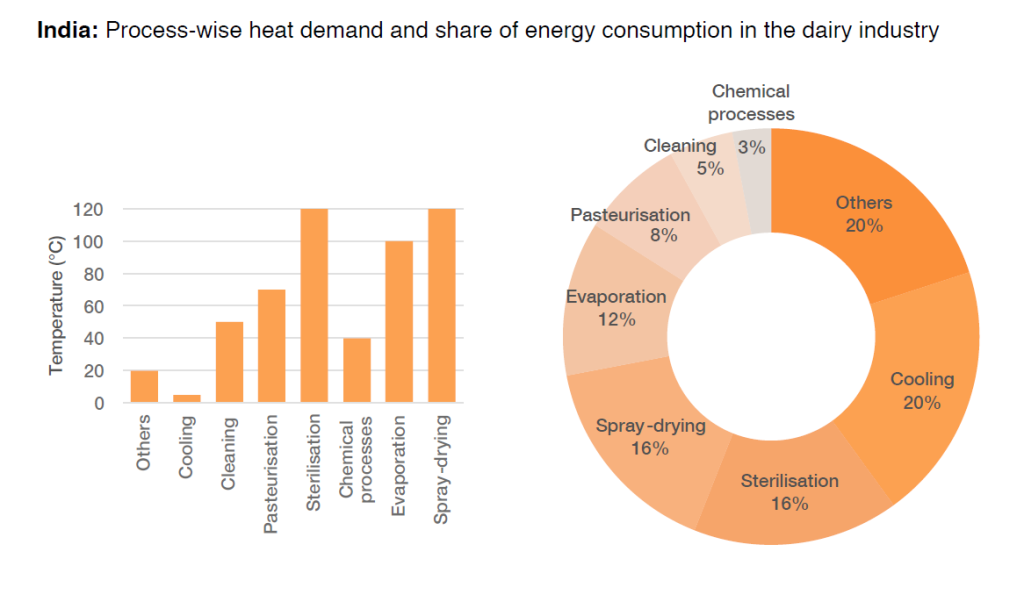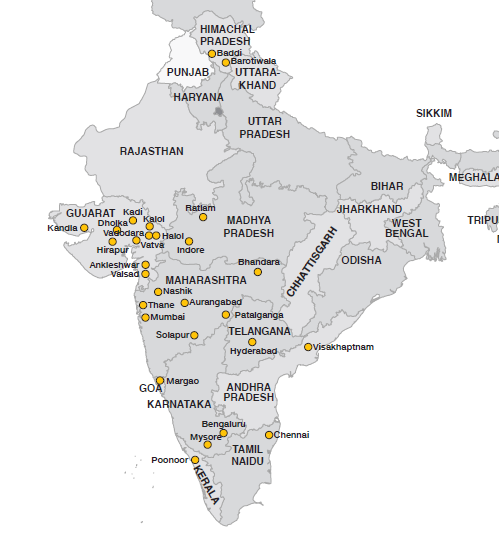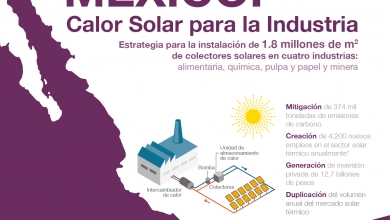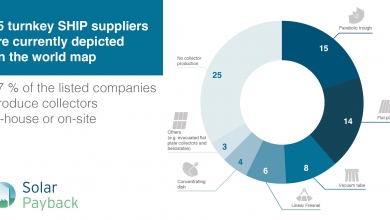Solar Heat for Industry in India

India’s industrial sectors account for more than 50% of the country’s energy needs, and are projected to grow massively during the next decades. A lot of the these energy sources have to be imported, either as oil, gas or high-quality coal. However, many industries in India use only low to medium temperatures of below 400 °C, which Solar Heat for Industrial Processes (SHIP) can easily provide. Particularly the dairy industry need large amounts of low temperature heat. As the world top producer of dairy, India thus is in a very good position to make use of abundant sunshine to cover the dairy industry’s heat needs. These are some of the key results from the study Solar Heat for Industry: India published in March 2020 within the Solar Payback project.
Source: Solar Thermal Federation of India
The study consists of 70 pages of description and analysis of the Indian SHIP market. It thus highlights the market niches and applications and heat demand in dairy, food and beverage, automotive, textile, chemical and pharmaceutical industries. It highlights distribution of these industry clusters throughout the country.
According to the report India has good preconditions for developing a flourishing SHIP market:
- India’s solar industry has a lot of experience with large-scale projects; around 78.000 m² of concentrating projects have been realised until 2018.
- The National Solar Mission has supported further growth of the solar thermal market with ambitious goals in terms of installation targets.
- Prices for solar collectors for concentration systems are benchmarked by several institutions.
- Standards for solar thermal collector systems are in place.
The report lists the key industries with the highest potential for the use of solar thermal system and maps the geographical distribution of each of the industrial sectors, for example the pharmaceutical sector below.

Part of the Indian map that shows the key pharmaceutical clusters
Source: Maps of India and India Drug Manufacturers Association
The authors of the study also use the last chapter to gather policy recommendations that are necessary to speed up the Indian SHIP market:
- Renewable Energy Service Companies (RESCOs)
RESCOs offer great potential for market development as end users are assured of reliable performance and relieved of high capital investments. For popularising RESCO, awareness is key, and sharing successful case studies and evidence of working concepts with bankers/financial institutions is important. - Renewable Heat Obligation
An obligatory policy measure in process industries with high heating needs could drive the market significantly. The Ministry of New and Renewable Energy (MNRE) is asked to formulate a policy to develop an industrial solar heat obligation, much like renewable purchase obligations, and allow trading of solar heating energy through certificates. - Performance-Based Incentive
Lack of standardisation is providing liberty to developers to build their own technologies and system configurations. It is highly recommended that MNRE makes standards mandatory and lists indigenous testing labs. If this happens, only selected technologies that perform as per standards will receive unit-based incentives, instead of upfront capital subsidies. Those systems that give better performance will receive higher incentives.
You can download the study Solar Heat for Industry: India.



